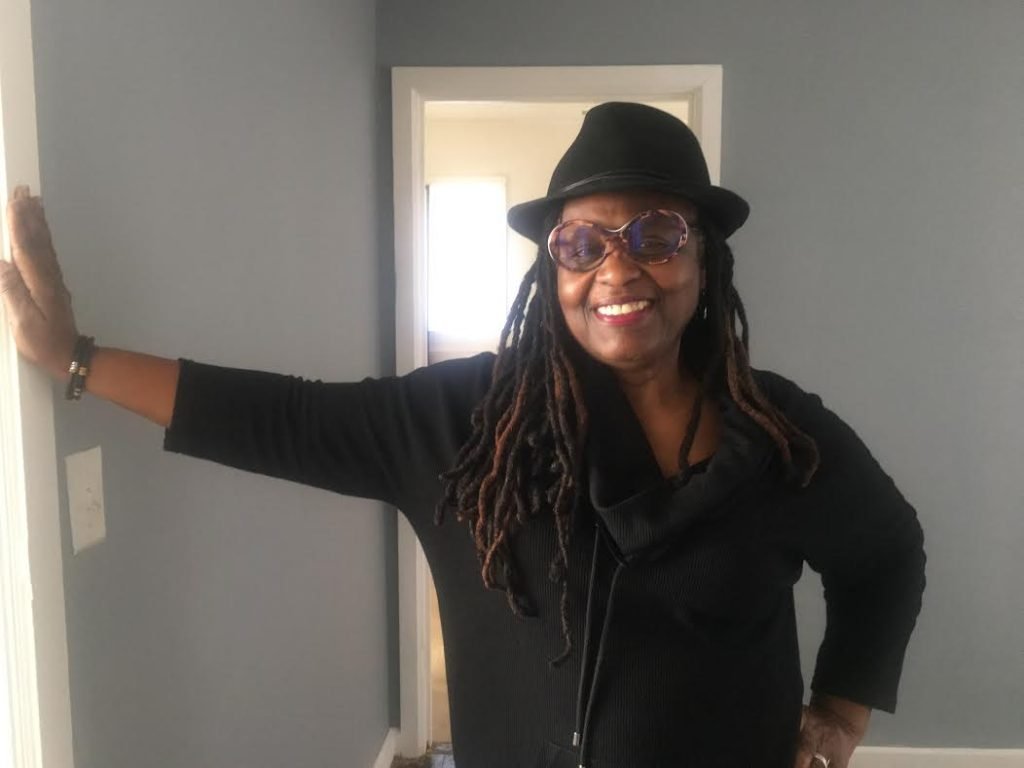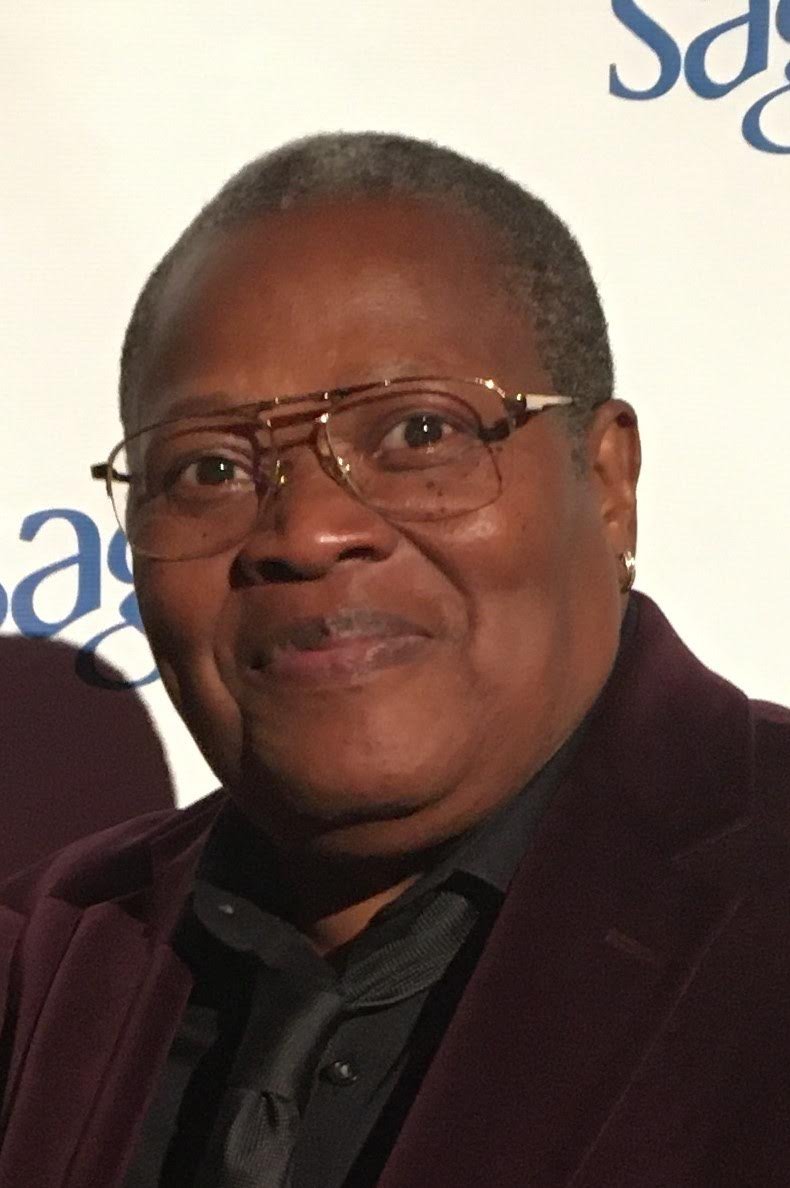Black LGBTQ Elders Make It Clear, ‘We Have A Lot to Contribute’

Before meeting her wife, Paulette Martin worried about aging alone.
She was 40, single, and recently out to her children. What she knew was that she didn’t want to become a burden in her golden years. She was worried about who would take on the responsibility of caring for her.
Fast forward some years, Paulette moved from Hawaii to New York in 2014. She desired connections with other Black LGBTQ elders and heard of SAGE, a national organization committed to advocacy and services for LGBTQ elders. They were having a party and needed volunteers for setup. It was also where she met Pat, her wife of four years.
“It’s difficult, very difficult, for a lot of community members to have this conversation around aging. From the time we are born, we are inundated with negative messages around aging in this country.”
“I was helping to put together swag bags for the party which Pat was hosting,” Paulette told The Reckoning. “As we were putting things together, I noticed that people were talking over Pat.”
Somewhat frustrated, she spoke up.
“I told them you all should submit to Pat. She knows what she is doing. I didn’t even know her.”
Pat took notice.
“At that moment, I knew everything I needed to know about Paulette,” said Pat.
They exchanged numbers. But once the events were done, Paulette deleted her number.
“I didn’t need it anymore!” Or so she thought.
As of 2022, the Martins have been together for six years and married for four. At 70, they are two of the most visible Black LGBTQ elders continuing to make valuable contributions to the LGBTQ movement.
Headquartered in New York City, SAGE is one of more than a dozen organizations across the country committed to providing support, services, and advocacy to Black LGBTQ elders.
“The work that we do at SAGE, and why I am here, is because our LGBTQ older adults have already been marginalized,” Paul Ortiz, Senior Director of Programs and Services in New York, told The Reckoning. “They are a unique generation. What we try to do in our centers is create for them a level of connection with others so that they experience value in their later years.”
According to research published in the Journal of Palliative Medicine, there are an estimated 2.7 million LGBT adults over the age of 50 in the United States. Of that number, more than one million are 65 years and older. This statistic is expected to rise as members of the baby boomers generation age.
Growing older has its fair share of challenges. In addition to declining physical and mental abilities, loss of loved ones, etc.; another challenge of aging is society’s tendency to push LGBTQ+ seniors into the shadows.
Disappearing From The Culture
Paul Glass, 72, understands how imperative connection is for Black LGBTQ elders. He is president of LGBT Elders of Color in Boston.
“We try to be a repository. We understand how members of our generation haven’t always trusted doctors, and for valid reasons. So, we bring that reference into our work of providing health resources so that by the time we get to a doctor it is not critical,” he told The Reckoning. “We understand how, after a certain age, members of our community move from the places they called home, where they had seen their primary care physician for 20 years or more, and now have to start all over with a new one.”
All of these are just a few of the challenges members of the Black LGBTQ elderly community face. Challenges that they try to provide support and solutions to in Boston.
“Such resources, oftentimes, are available that Black LGBT elders are not privy to. I have seen where, by the time people got to the point of doing something about their symptoms, they were at the stage of AIDS,” added Glass, who is a person living with HIV. “At 72, I am still bouncing around here like I am 30. The issues around health care are more prevalent the older you are.”
“Such resources, oftentimes, are available that Black LGBT elders are not privy to. I have seen where, by the time people got to the point of doing something about their symptoms, they were at the stage of AIDS.”
- Paul Glass
In Atlanta, Mary Anne Adams founded ZAMI NOBLA (National Organization of Black Lesbians on Aging) to fill a void.
“One of the reasons I founded ZAMI was because I would see Black lesbian elders disappearing from the culture,” she told The Reckoning. “A lot of times when people over 50 would enter social spaces, people would ask, ‘Why are you here? You are too old to be here.’ Such feelings of being unwelcome would cause them to become insular. When you are socially isolated, that can lead to loneliness, depression, and a host of other mental health ills.”
ZAMI, a membership-based organization, centers its work around service, advocacy, and community action through research and power building.
“Ironically enough, I have had recent conversations with some Black gay men I know here in Atlanta over the last several years around developing some expertise in Black LGBTQ [identity] and aging; specifically for those living with HIV,” she added. “I reached out specifically to those who have been working extensively in the Black HIV area. They were not necessarily gung ho about doing that.”
Shifting paradigms is at the root of Adams’ work.
“It’s difficult, very difficult, for a lot of community members to have this conversation around aging. From the time we are born, we are inundated with negative messages around aging in this country,” she said. “All of these messages are negative and need to be turned on their head. We are trying to shift the paradigm to see aging as affirming, to see getting older as vibrancy.”
Be Your Own Voice
When Paulette returned to New York, obtaining medical care was one of her challenges.
“As a queer person, it is hard to find a doctor who will listen. Many have assumed I am a heterosexual woman, which has brought its fair share of issues,” she said.
Once, during a doctor's visit, she had a necessary conversation about sexual intercourse with her doctor.
“I asked her, ‘why would you assume there is no penetration,’” Paulette reflects. “It is not easy, but necessary. I will ask questions because some of them are not as culturally aware and conscious. You have to be your own voice.”
But that’s not always easy for everyone. And while doctors assume Paulette is a heterosexual woman, the same isn’t the case for Pat.
“When I go into a doctor's office, they are totally confused. I am a woman dressed in men’s clothing,” she states. “I have to let them know I am a woman with female parts that function just the same as my wife’s parts. Unless I speak up, they won’t treat me as a woman, regardless of what I look like, and they won’t answer my questions in a language I understand.”
“When I go into a doctor's office, they are totally confused. I am a woman dressed in men’s clothing. I have to let them know I am a woman with female parts that function just the same as my wife’s parts. Unless I speak up, they won’t treat me as a woman.”
- Pat
Compared to younger generations, Black LGBTQ elders are still impacted by much of the discrimination they faced in their younger years.
“A lot of folks our age still are not comfortable with the label of queer,” Glass said. “It was very derogatory—almost akin to the n-word—when we first came out it was weaponized. We do not use the term out loud in our spaces. But, understanding that when we were young, we were brash and progressive, and wanted to change the world just like this generation, we are still progressive enough to be inclusive of those who do use it.”
Any time he gets the chance to highlight the realities and experiences of “old gay folk,” Glass jumps at the opportunity.
“A lot of folks our age still are not comfortable with the label of queer. It was very derogatory—almost akin to the n-word—when we first came out it was weaponized. We do not use the term out loud in our spaces.”
“Educating across the board is important. Folks sometimes have preconceived notions about us, and sometimes we are so guarded and we want to keep it like that,” he said. “They need to know that some still believe that a little love doesn't hurt anyone. Just cause we're old, doesn’t mean we stop having sex. That is an important piece. But people need to know we are here. They need to know we are active.”
For Pat, seniors should take advantage of spaces offering support.
“There are spaces available that will meet your needs,” she said. “But not only that, it is important to not look at us as helpless. We may be older, but we are not laying down and giving up. We are standing tall in our community. We are standing strong in who we are. And we want people to know that because people are of a certain age does not mean we are helpless. We have a lot to contribute.”
Mashaun D. Simon is an equity and inclusion advocate who centers his preaching, writing, and scholarship on cultural competency, identity, and equity.
He has written for NBC News and the Atlanta Daily World, the Atlanta Journal-Constitution, Black Enterprise, Bloomberg News, TheGrio.com, Ebony Magazine, BelieveOutLoud.com, and Essence Magazine. He has also created and managed cultural competency and affirmative action programming and training and in 2018, Mashaun organized and facilitated Kennesaw State University’s Faith and Sexuality Symposium on behalf of KSU’s Presidential Commission for LGBT Initiatives. In 2021, Mashaun was selected as a member of the inaugural cohort of the Rising Leaders Fellowship.
He holds a professional writing degree from Georgia Perimeter College, a Bachelor of Science in Communications from Kennesaw State University, and a Master of Divinity from Emory University's Candler School of Theology.



